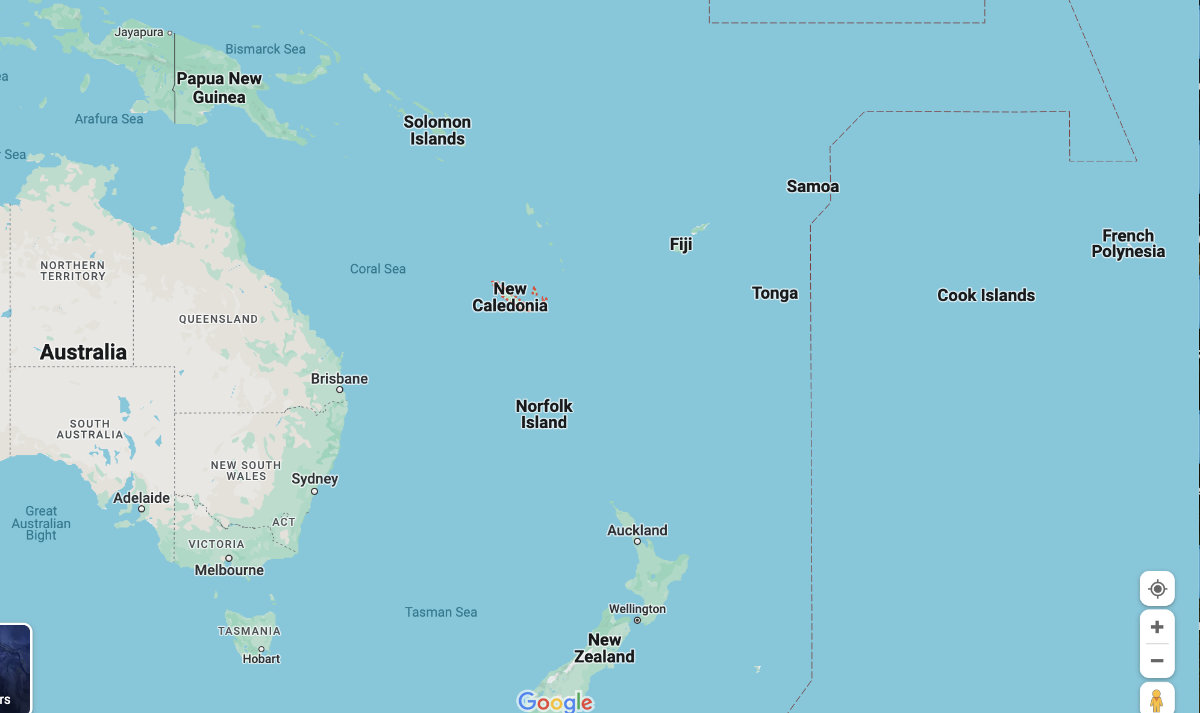NOUMEA, New Caledonia: French Pacific territory New Caledonia was “under siege” Saturday, the mayor of its capital Noumea said, after another person was killed, bringing the toll to six in six days of unrest.
Two other men were wounded in Saturday’s deadly incident, which occurred in the archipelago’s northern Kaala-Gomen area, General Nicolas Mattheos said.
Hundreds of heavily armed French soldiers and police patrolled the debris-filled streets of Noumea Saturday.
But Philippe Blaise, vice president of the territory’s southern province, said: “Today, the rule of law, security for citizens, are not back in place everywhere in (New) Caledonia.”
And Noumea mayor Sonia Lagarde told news channel BFMTV: “We’re far from getting back to calm.”
Anger is still high over a contested voting reform, even after the arrival of hundreds of military and police reinforcements.
AFP reporters in the city’s Magenta district saw vehicles and buildings torched, with riot police on the scene trying to reassert control.
Overnight, residents reported hearing gunfire, helicopters and “massive explosions” — seemingly gas canisters blowing up inside a burning building.
For days, Helene, 42, has been guarding makeshift barricades in shifts with neighbors as they waited for hundreds of French security forces to be flown in to restore order.
“At night we hear shooting and things going off,” she told AFP. “Helicopters and military planes landing — which is sweet music to our ears.”
Economic malaise
For almost a week, the usually calm oceanside city has been convulsed with violence.
Two gendarmes and three other people, Indigenous Kanaks, have also been killed.
The unrest has been blamed on economic malaise, social tensions and — above all — a political fight between mostly Indigenous pro-independence activists and Paris authorities.
French officials have accused a separatist group known as the CCAT of being behind the riots and have placed 10 of its activists under house arrest.
CCAT on Friday called for “a time of calm to break the spiral of violence.”
Annie, an 81-year-old Noumea resident, said the week’s violence had been worse than that seen during the tumultuous 1980s: a time of political killings and hostage-taking referred to as “The Events.”
“At the time, there weren’t as many weapons,” she said.

Google map showing the location of New Caledonia.
Seeking independence
New Caledonia has been a French territory since the mid-1800s.
Almost two centuries on, its politics remains dominated by debate about whether the islands should be part of France, autonomous or independent — with opinions split roughly along ethnic lines.
The latest cycle of violence was sparked by plans in Paris to impose new voting rules that could give tens of thousands of non-Indigenous residents voting rights.
Pro-independence groups say that would dilute the vote of Indigenous Kanaks, who make up about 40 percent of the population.
French authorities have called for talks and insist the situation is now “calmer” and being brought under control.
Around 1,000 security forces began reinforcing the 1,700 officers on the ground from Thursday.
Efforts to negotiate peace have so far stumbled, although French President Emmanuel Macron had begun contacting pro- and anti-independence officials individually on Friday, his office said.
'Azerbaijani actors'
A local business group estimated the damage, concentrated around Noumea, at 200 million euros ($217 million).
The damage to the islands’ reputation may cost even more.
Tourism is a big earner for New Caledonia, but an estimated 3,200 tourists and other travelers have been stranded inside or outside the archipelago by the closure of Noumea’s international airport.
The unrest has also pushed organizers to cancel plans to bring the Olympic flame through New Caledonia on its journey from Athens to Paris — where the summer Games will begin in late July.
“I think everyone understands, given the current context, the priority is consolidating a return to public order and then appeasement,” French Sports Minister Amelie Oudea-Castera said on Saturday.
On Friday, French government agency Viginum said it detected a “massive and coordinated” online campaign pushing claims that French police had shot pro-independence demonstrators in New Caledonia.
Paris pointed to the involvement of “Azerbaijani actors” in the campaign, deepening a diplomatic spat between the two countries.
Azerbaijan has denied accusations of interference in New Caledonia.



























